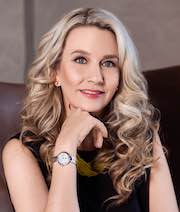In a moment that shook the world, social media ignited when a CEO and his HR manager were caught on the jumbotron screen at a Coldplay concert earlier this month.
Their shocked and reflexive reaction, broadcast to the 65 000 fans in the stadium and subsequently millions more online, spread like wildfire, overnight. Chris Martin, the band’s lead singer, commented on what the crowd was probably thinking, as any performer would, but nobody could predict what would have happened next.
Within hours, the clip went viral, worldwide. The identities of the two were quickly revealed as Andy Byron, CEO of tech company Astronomer and Kristin Cabot, the company’s head of HR. Both are apparently in marriages. Just not with each other…
The deeper reason this moment was so impactful
What made this moment spread so fast? Perhaps it was the awkwardness, the public discomfort, or the hint of a secret relationship exposed. Actually, it was the couple’s panicked reaction, not playing along, that amplified it for the watching crowd and the drama-thirsty internet.
And when the world found out who they were, the rest was history.
There was something Gatsby-esque about it all. A successful man, supposedly in control of everything and at the top of his game, brought down by one unexpected and very human moment. In the space of 30 seconds, a career was derailed and a company thrown into crisis management.
Not because of the event itself, but because of the primal urge it struck, what people inferred from it and how quickly the story travelled.
The social media machine and what it’s become
This incident reveals a lot about where we are as a society. Social media has created an environment where human interactions can be captured and broadcast to the world in seconds. There is no filter, no pause and no context. Just instant outrage and relentless momentum.
We used to expect accountability from our politicians and public figures via our legacy media. Now, that same level of scrutiny is being applied to anyone and everyone. If you are a leader, a public figure, or just someone in the wrong place at the wrong time, your private life can become a headline in a matter of minutes.
It also speaks to something deeper about human nature. As much as we celebrate success, humans are fascinated by failure.
As the Green Goblin in Spider-Man said: “The only thing people love more than a hero is seeing a hero fail” … There is a sinister satisfaction derived from watching powerful people fall and an over-developed sense of entitlement to watch their lives unravel.
Social media has made that cycle faster, harsher and more addictive, and it isn’t slowing down.
What should we be learning from this?
There are a few clear lessons here. Firstly, the world is much smaller than we think. What happens on a Saturday night can reach phones and newsrooms across the world before the clock strikes 12.
Secondly, there is no such thing as having a public self and a private self anymore. You are one person and will be scrutinised for every choice you make. The things you do in your personal time can have a tremendous impact on your professional potential.
We also need to revisit what integrity means. It is not just about doing the right thing at work. It is about showing a level of consistency in your values that drive how you behave professionally and how you act when you think no one is watching. If there is a gap between the two, it will eventually show.
For companies, it means being ready to deal with fallouts that start outside the office and to show decisive leadership in tough times.
When senior leaders behave in ways that compromise trust, even in their private lives, there is a ripple effect. The brand feels it. The staff feel it. Customers and investors feel it. Ignoring this reality is no longer an option. Confident, quick and intentional PR is needed.
As the world gets smaller, it will ultimately mean more scrutiny in recruitment because companies simply can’t afford to take reputational risks.
And for the rest of us, there is a choice to make. Do we click, share and laugh without thinking? Or do we pause and remember that behind every clip is a real life, a family, often involving children, a situation that is probably far more painful than it is funny?
Questions we need to be asking
What does this say about leadership in the digital age? Should companies respond differently when personal behaviour spills into public view? Should senior executives be expected to uphold a higher level of personal accountability, knowing how closely they are tied to the brand’s image? What kind of PR and communication actually restores trust in moments like these?
And perhaps most importantly, what role are each of us playing in feeding the social media monster that we have created?
If we are all now part of the media, what standards are we prepared to apply to ourselves?

Jenny Griesel is managing director of Jenny Griesel Communications. She is a PR and communications specialist in South Africa, with over 20 years of experience. Through her boutique agency, Jenny Griesel Communications, she provides exceptional PR, media, creative, marketing and communications services to several of the country’s strongest brands. She loves what she does and is proud to include Disney, National Geographic, ESPN, New Southern Energy, SPAR, Gravel Road Distribution Group, Africarare, the Liberty 2 Degrees Shopping Centres (including Sandton City, Nelson Mandela Square and Eastgate) and others among her clients.














